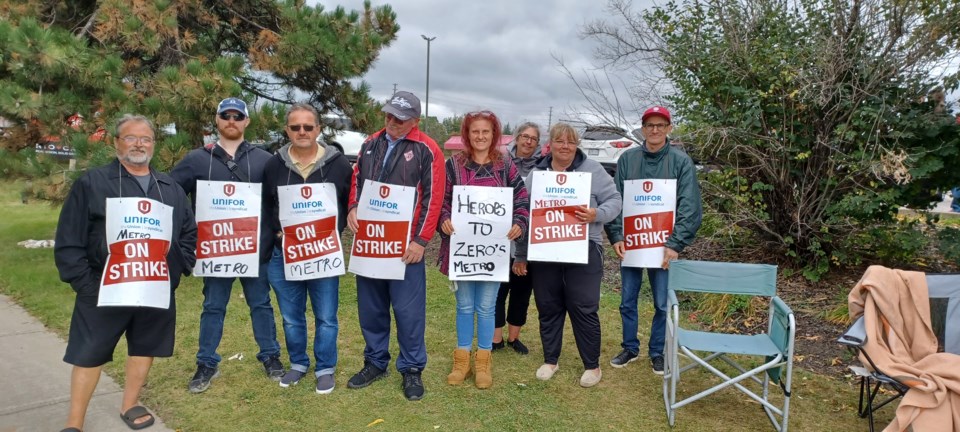Newmarket Davis Drive Metro clerk Vanessa Mouriopoulos knows what it is like to bargain with her bosses.
One of hundreds of striking workers represented by Unifor, Mouriopoulos said expectations are not high after the union bargaining committee reached a tentative deal.
“We’re hoping for the best, but we’re probably expecting the worst,” she said. “I hope they made our demands, but we’re not sure. At this point, just got to wait and see.”
Metro and Unifor announced a tentative deal Aug. 30 that could end a strike that has gone on for a month. Newmarket’s two Metro locations are among the 27 that have remained closed due to the strike.
Workers will vote tomorrow on whether or not to ratify the deal. Although Metro said the union’s bargaining committee has unanimously recommended the deal, that was also the case a month ago, when workers voted against the negotiated deal and went to the picket line.
Workers are looking for a better hourly wage increase than $3.65 over four years (91 cents per year) for full time and $2.65 for part time (66 cents per year) that was part of the deal that failed a ratification vote in July.
The two sides have not yet released the details of the newly negotiated deal.
“We definitely would like to see our pandemic payback,” Mouriopoulos said, referring to a temporary pandemic pay boost that was later removed. “We would still like to get what the company offered, but we would like more.”
Metro said in a news release that the agreement “is fair and equitable for our employees and our customers,” with details to be presented at the ratification vote.
Unifor said it negotiated a new deal thanks to the commitment of its members.
“I commend the workers and the bargaining committee for their solidarity and also the customers who supported them during this difficult time,” Unifor national president Lana Payne said in a news release.
Staying on the picket line for a month does not come easily, Mouriopoulos said.
“We’re starting to struggle financially. Although we do want ratification, we do want our demands met,” she said. “We’re willing to stand out here even longer.”
But asked about how that financial struggle could impact the vote tomorrow, Mouriopoulos acknowledged that it could.
“That’s the tricky one. It depends on how much people can hang on. Of course, they’ve kept us on poverty wages for such a long time now (that) it’s almost forcing people to go back to work,” she said. “I hope they can stay strong, and we can stand united, and our demands can be met.”



